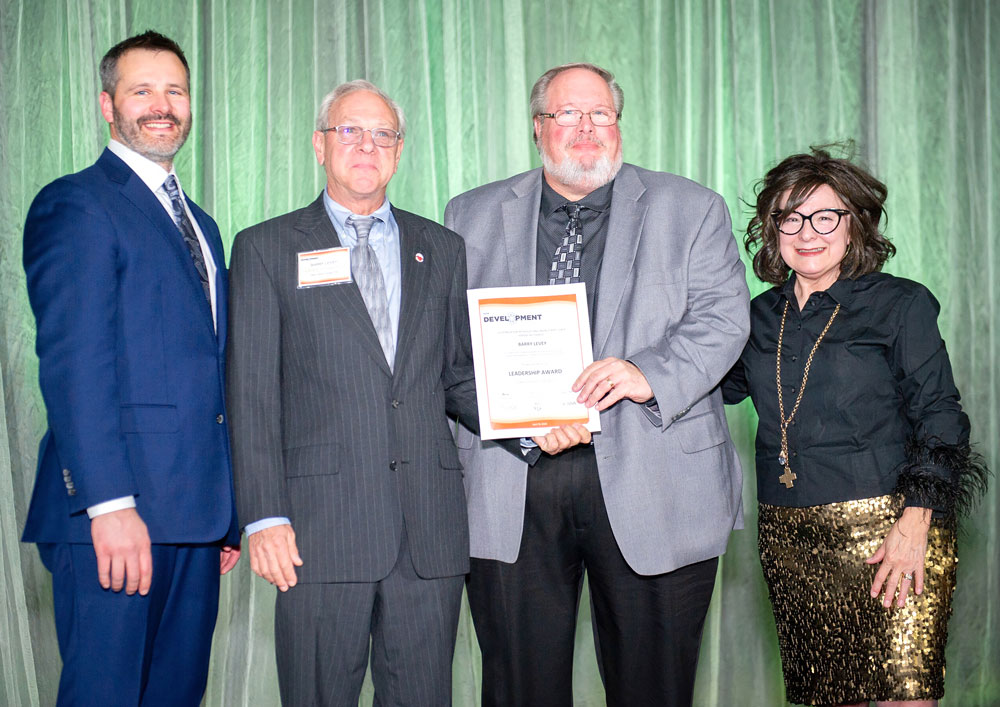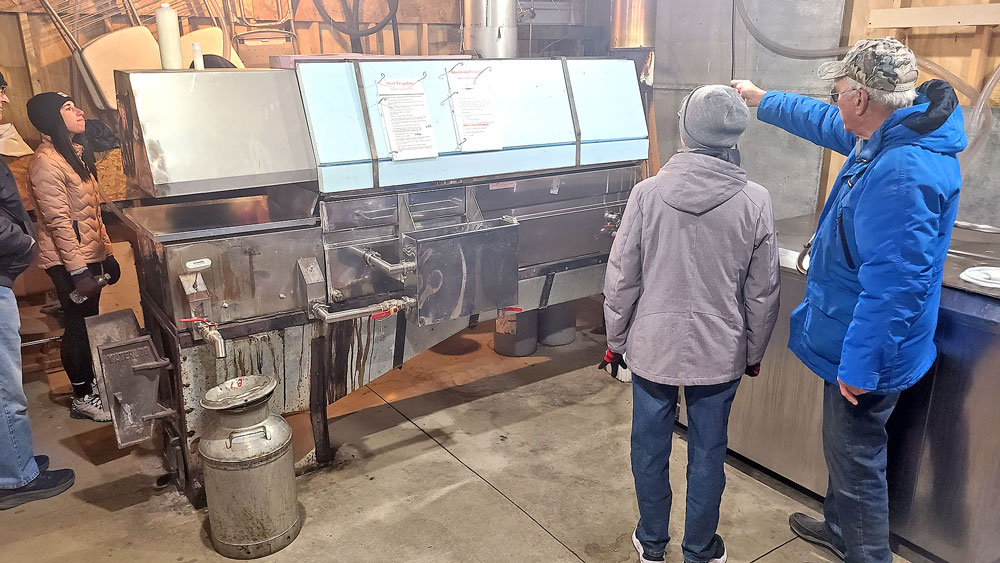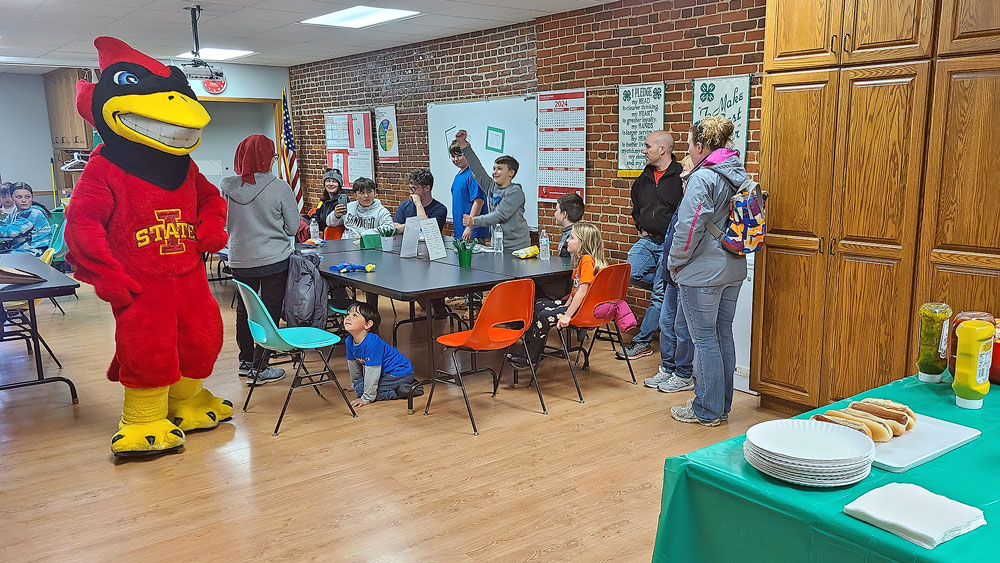Broadband Commission unanimously votes to move forward with fiber-to-the-home project
By Kelly Terpstra, kterpstra@charlescitypress.com
A recommendation that has been 14 years in the making was finally decided upon Tuesday evening.
Now it’s up to the Charles City Council to decide whether to follow the Broadband Commission’s recommendation to proceed with a $13 million fiber-to-the-home project.
All signs seem to point to a possible vote by the council before year’s end.
“It’s very exciting times. The Broadband (Commission) unanimously voted tonight to move forward with the fiber-to-the-home project and make that recommendation to the City Council to create that municipal telecom utility,” said City Administrator Steve Diers.
The tally was 5-0 in favor of recommending to go ahead with the project and consisted of votes from commission members Josh Mack, Jeff Marty, Danny Wilson Jr., Cady Mead and chairman Mark Wicks. Commission member Cheryl Erb was not present at the meeting.
“This is the go, no go as far as we’re concerned. The council has the final decision,” said Wicks, before the vote was taken.
The process to create a municipal telecom in Charles City started in 2005 when voters approved a referendum that gave the city the authority to establish a telecommunications utility. That vote passed with a 62 percent majority, 640-385.
Charles City voters also decided to have it managed by a separate utility board. Diers has stated that the board would need to be in place prior to the issuance of any revenue bonds that could fund the project.
Also at the commission meeting Tuesday evening, it was revealed that the commission is recommending the city purchase 800 N. Main St., the Unggoy Broadband building, to house the telecom’s data center.
A $2,000 option to purchase has been offered to give the city time to buy the building.
“He can’t sell to anybody else during that time period,” said Diers. “We want him to sign off on the option. During the time of this option, we’ll have the ability to come in, fully inspect the property even further – check the structural integrity. Once we’re satisfied with that – at whatever point that is – we’ll exercise that option and buy the property.”
Diers said he would like to have documents ready for Monday’s regular council meeting so council members could vote on an ordinance to approve the option to purchase. Typically ordinances are voted on with a notice of a public hearing as well as three readings.
Diers said that he is still trying to negotiate and iron out details about the building like co-location as well as possession of the property.
“If and when we come to an agreement to acquire the property what are the terms around him being able to stay and use that property for the next period moving forward?” said Diers. “How long do we want to negotiate on this?”
The timeline of negotiations is important because it has been proposed that fiber could start being laid in the spring.
Diers said that may be a lofty goal and Mack added that breaking ground by spring may be aggressive this far out. Regardless, the ball seems to be rolling in the right direction for the telecom to be operational and “live” by sometime in 2020.
“You could start to put the board in place in January and you’ve got your testing done, so you should know if you’re going forward with the building. So, I mean this thing should be on a pretty good roll by February and March. That was, at the last meeting, that was kind of the stepping stone to get going, just to be able to have something by year end,” said ex-officio commission member DeLaine Freeseman.
Erik Lampland, with Lookout Point Communications, along with NewCom Technologies, need to know the location of the data center before their firms can map out where construction of fiber needs to begin.
“In the event we get that total process done some place in March or an actual build started in April or May – whenever the ground thaws – it should be sufficient,” said Lampland.
The next step for the commission, contingent upon council approval, is to create a utility board. A general manager and interim network engineer also need to be hired to oversee implementation of fiber being put in the ground.
Most on the commission agreed that utilization of the Broadband Commission would still continue after the utilities board has been appointed.
“We’ve talked, probably close to a year ago, as we move this process along, at what point do we hire that first employee?” said Diers. “We’ve been fortunate with the talents at this table to have been able to do a lot of this work ahead of time and get us to this point. We’re at that point where if we decide to pull the trigger on this, when do we hire that day-to-day staff person to kind of help get this going?”
Commission members, along with city leaders, have gone into closed sessions in each of the last three meetings to discuss the purchase of property for a data center and to review proprietary financial information.
Charles City is looking to become the first community in the state to fund a broadband project without using its own electrical utility as backing to fund the project. The benefit of also having a community utility is shared services with staffing and large amounts of liquid assets to fund the project or help borrow through the utility.
The infrastructure built to create the telecom could potentially connect thousands of residents and businesses in Charles City with the objective of providing a fast, reliable and universally available network within the city.









Social Share